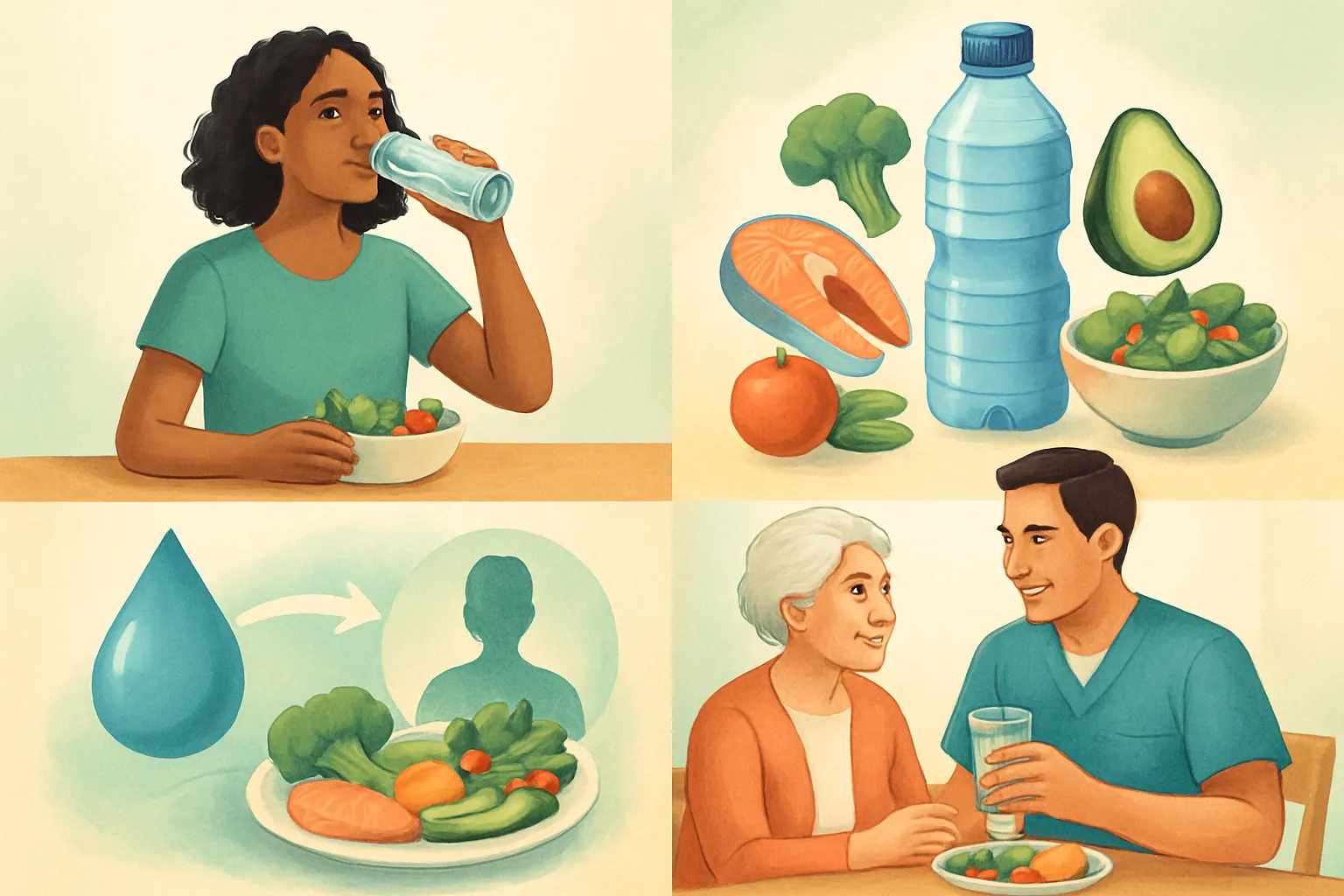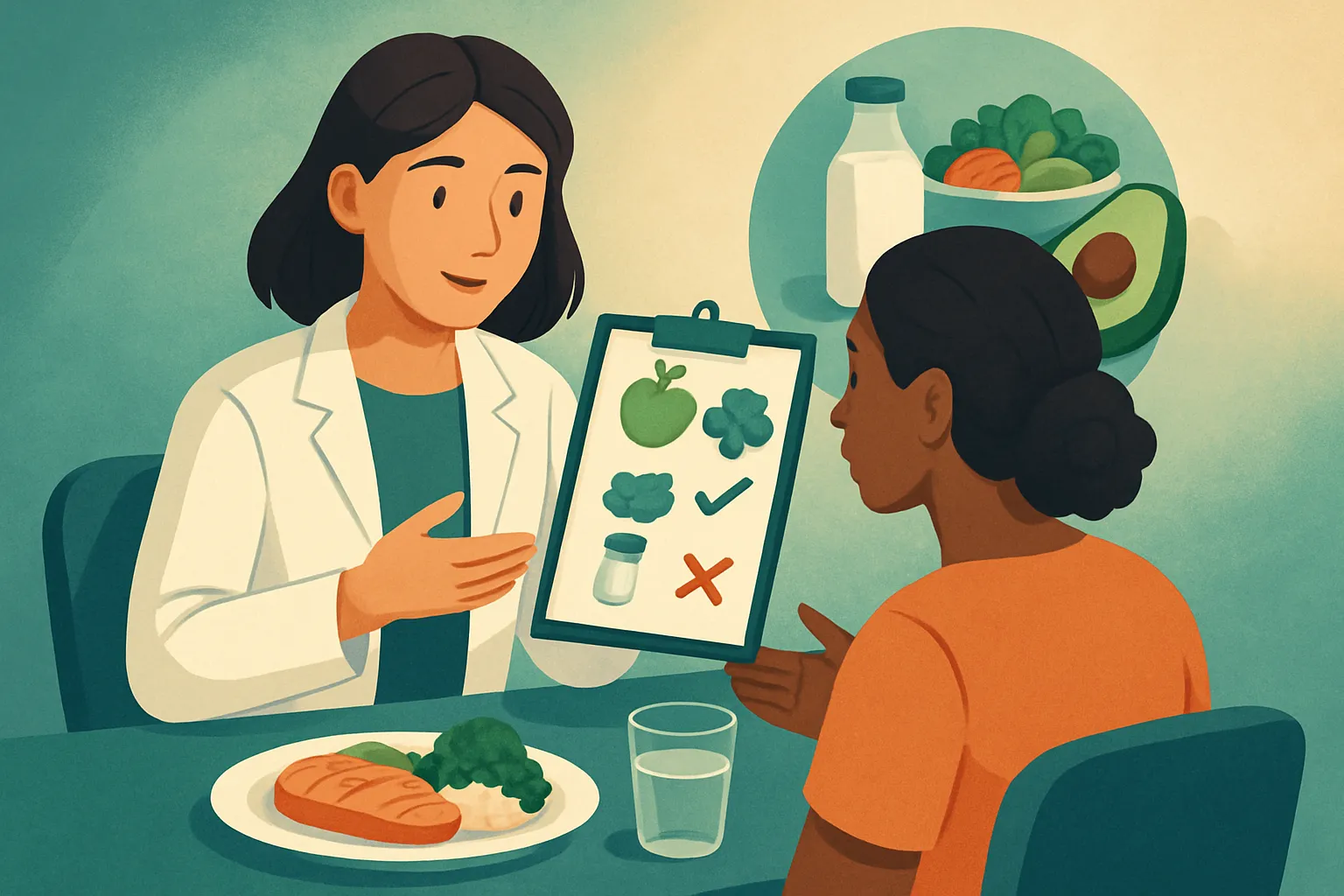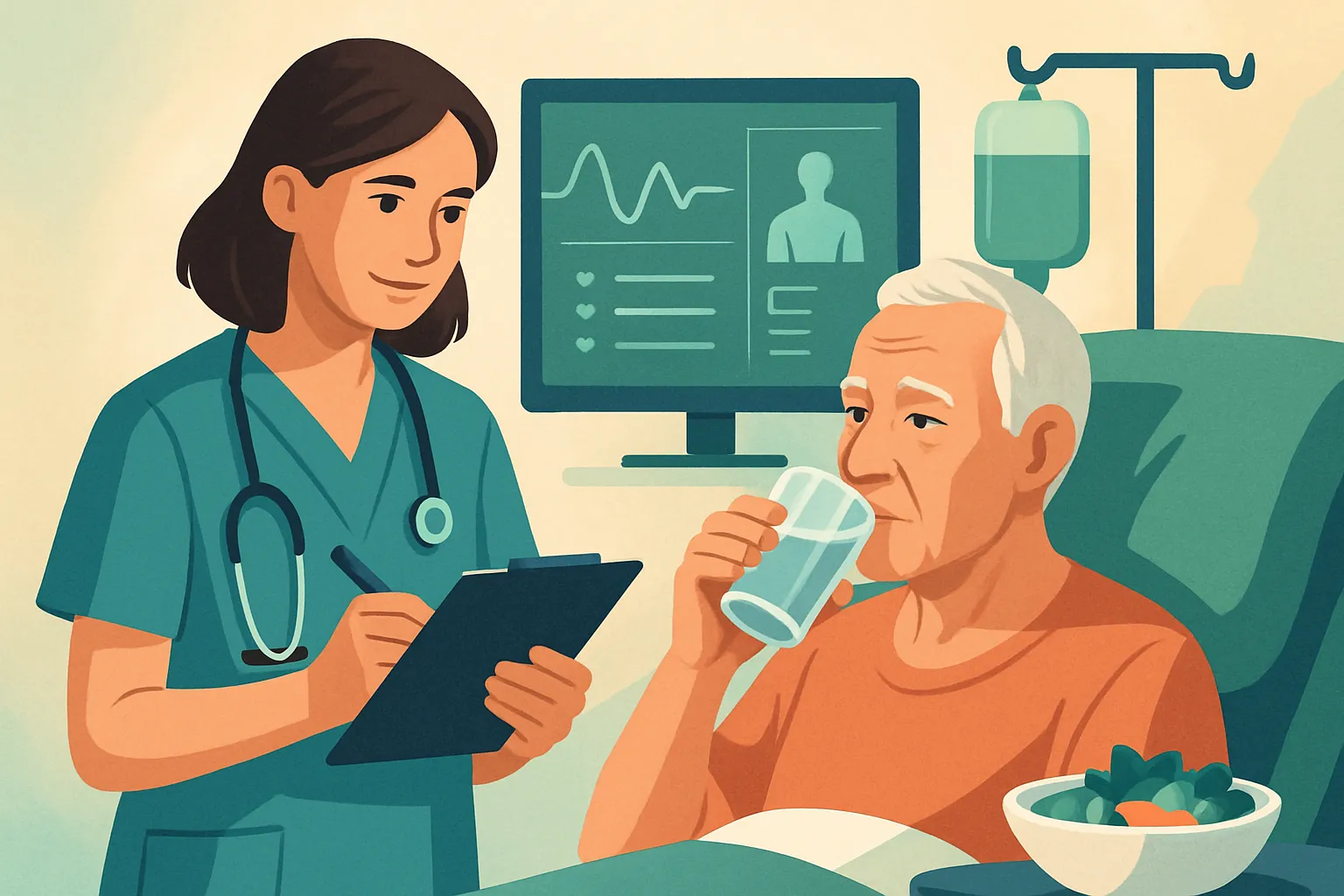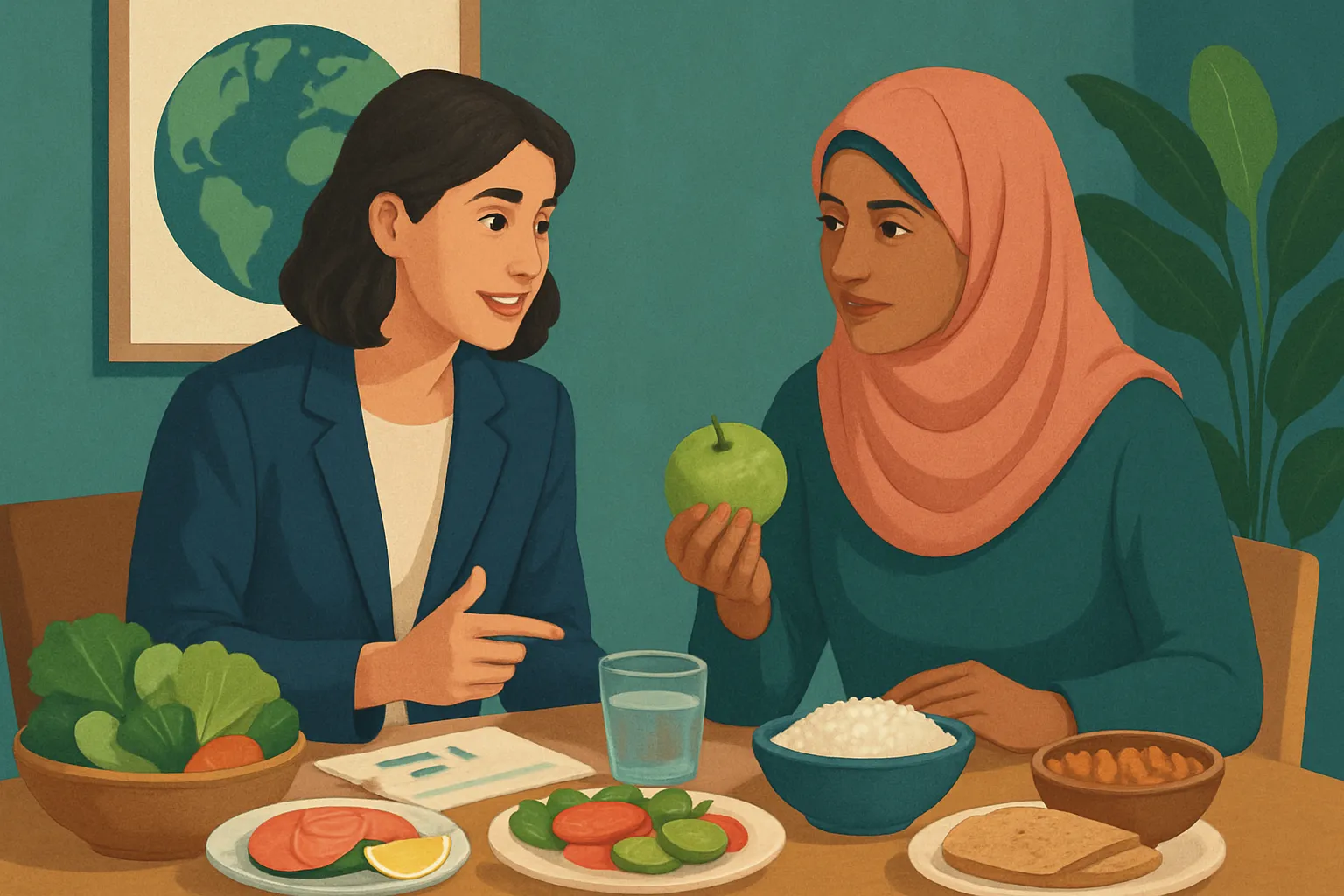Curriculum
- 15 Sections
- 15 Lessons
- 2 Weeks
- Understanding Your Role2
- Duty of Care2
- Equality and diversity2
- Person-centred care and empowerment2
- Communication2
- Privacy and dignity2
- Fluids and nutrition2
- Awareness of mental health, dementia and learning disabilities2
- Safeguarding adults2
- Safeguarding children2
- Basic life support2
- Health and safety2
- Handling information2
- Infection prevention and control2
- Understanding learning disabilities and autism2
Curriculum
Fluids and nutrition
Learning Objective:
Understand the importance of fluids and nutrition for safe, compassionate care and how to support diverse dietary needs.
Healthy hydration and nutrition

Healthy hydration refers to maintaining the body’s necessary fluid balance. Adequate water intake is crucial because it supports essential bodily functions, like regulating temperature and maintaining healthy skin. Balanced nutrition, on the other hand, involves a diet that provides a variety of nutrients from all major food groups, such as fruits, vegetables, proteins, and grains. This ensures the intake of essential vitamins and minerals that fuel day-to-day energy, enhance recovery, and promote overall wellbeing. By prioritizing healthy hydration and balanced nutrition, care workers can significantly contribute to person-centred care, ensuring clients’ dignity, safety, and optimal health.
- Hydration
- Balanced Diet
The process of providing adequate fluids to maintain bodily functions.
A diet that includes portion-appropriate servings from all food groups such as fruits, vegetables, proteins, and grains.
Supporting dietary needs

Supporting dietary needs involves recognizing and accommodating individual dietary restrictions, preferences, and requirements. This can include catering to allergies, intolerances, or specific cultural and personal preferences while ensuring that the diet remains nutritionally adequate. Some common dietary adjustments might include offering low salt options or meals suitable for diabetes. Flexibility and adaptability in care plans are crucial to cater to these varying needs, ensuring that every individual’s dietary support is respectful and comprehensive.
Monitoring and assistance

Proper monitoring of fluid intake and nutritional status is essential in health care. It involves the regular documentation of an individual’s fluid consumption and nutritional intake, as well as observing any changes in their physical condition. Recognizing signs of inadequate intake early, such as dehydration or malnourishment, is key to preventing more severe health issues. Monitoring helps ensure the well-being of individuals by allowing prompt interventions and adjustments to care plans.
- Check daily fluid intake logs
- Observe indicators for hydration
- Document changes in appetite or weight
- Report findings
Ensure that intake is compared against recommended targets.
Look for signs such as skin turgor and urine color to assess hydration levels.
Regularly check for and record any unexpected changes.
Communicate any concerns to a supervisor or a dietitian for further advice.
Personalized nutrition plans

A personalized nutrition plan is essential for delivering person-centred care. It involves assessing an individual’s unique health status, dietary preferences, allergies, and cultural considerations. These plans are crucial in meeting personal health goals and preferences, thereby supporting overall well-being while respecting individual choices and promoting dignity.
- Assessment of dietary requirements
- Identification of allergies/sensitivities
- Cultural and religious dietary considerations
- Fluid intake targets
- Nutritional goals and expected outcomes
Evaluate individual nutritional needs and goals.
Ensure all known allergies and sensitivities are documented and avoided.
Respect cultural and religious practices related to food.
Set specific hydration goals based on individual health needs.
Define and aim for tangible health or wellbeing improvements.
Cultural sensitivity in nutrition choices

Cultural sensitivity in nutrition choices is vital for respecting diverse backgrounds and promoting dignity. Various cultures and religions have unique dietary laws and food preferences, influencing individual dietary requirements. Care workers must be mindful of these differences, recognizing that respecting them not only ensures nutritional needs are met but also upholds the individuals’ cultural and personal values.
- Religious Dietary Laws
Understanding the significance of halal, kosher, and vegetarian practices can foster a more inclusive care environment. Such knowledge helps care workers comply with dietary restrictions and provides appropriate meal options for individuals observing religious laws.